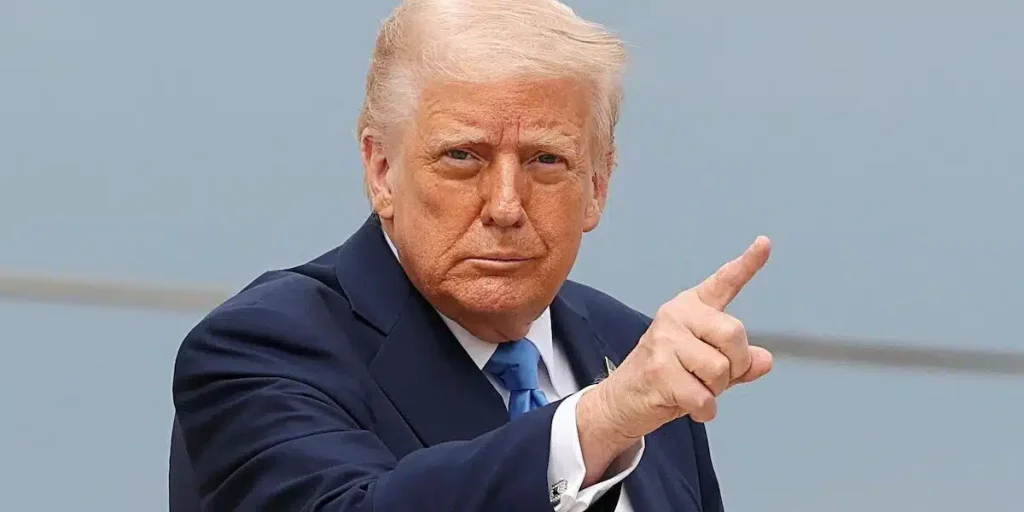
In a major trade policy shift, U.S. President Donald Trump has introduced a baseline 10% tariff on all imports into the United States.
Additionally, countries that impose high tariffs on American goods will now face reciprocal duties, with Nigeria’s exports to the U.S. subject to a 14% tariff under the new directive.
The decision, announced at a White House event dubbed “Liberation Day”, represents a dramatic departure from long-standing free-trade policies. According to President Trump, the move is aimed at revitalizing America’s industrial base and ensuring “fair trade” by countering what he describes as unbalanced trade policies from various countries.
Impact on Nigeria-U.S. Trade Relations
The U.S. government’s decision to impose a 14% tariff on Nigerian exports stems from Nigeria’s current 27% tariff on American products, a measure that Washington deems excessive.
Trade between Nigeria and the United States has been significant over the years. Data from the National Bureau of Statistics (NBS) indicates that total trade between the two nations reached N31.1 trillion ($67 billion) between 2015 and 2024. During this period, U.S. exports to Nigeria amounted to N16.4 trillion ($35 billion), making up 8.7% of Nigeria’s total global trade.
However, Nigeria’s exports to the U.S. have declined in recent years, largely due to a drop in American crude oil purchases, which historically formed a major component of trade between the two countries. With the new tariffs, analysts predict further shifts in Nigeria-U.S. trade dynamics, potentially affecting sectors such as agriculture, manufacturing, and energy exports.
Wider Global Trade Implications
The U.S. tariff policy does not only affect Nigeria but extends to over 50 countries, including major economic powerhouses such as China, the European Union, India, and Japan. The measure is expected to spark retaliatory actions from some of these nations, further intensifying global trade tensions.
Economists warn that these tariffs could lead to higher prices for imported goods in the U.S. while also potentially disrupting supply chains worldwide. For Nigeria, businesses and exporters that rely on U.S. trade will likely face increased costs and reduced competitiveness in the American market.
What Comes Next?
With the new tariffs already in effect, the Nigerian government may need to reevaluate its own tariff policies if it seeks to negotiate better trade terms with the U.S. Economic experts suggest that Nigeria could explore bilateral trade talks to ease the impact on its export sector.
Additionally, industries affected by the new tariffs may have to diversify their trade partners or seek incentives from the Nigerian government to cushion the effects of the U.S. policy shift.
As global trade tensions continue to evolve, the coming months will reveal how countries—including Nigeria—adapt to this new era of protectionist trade policies.





